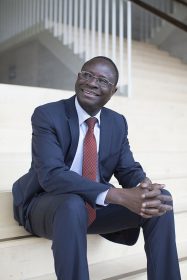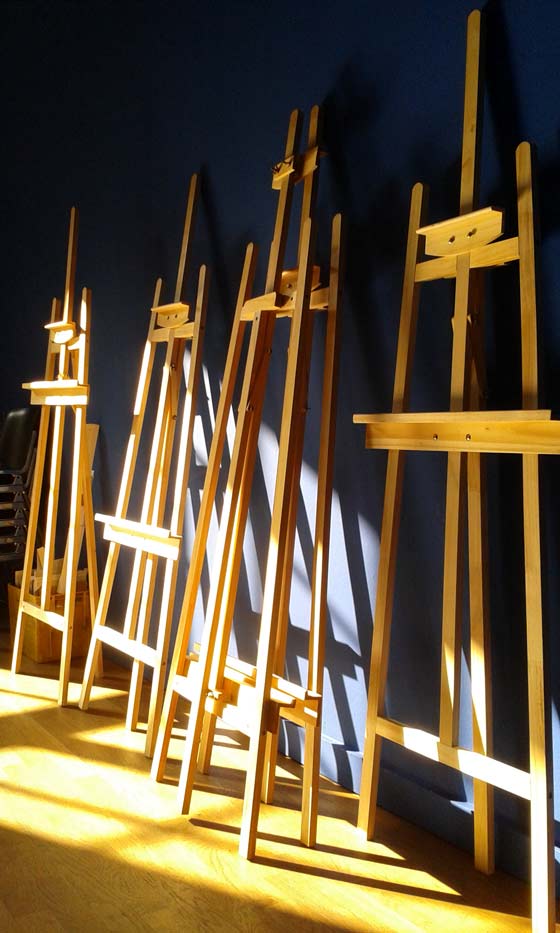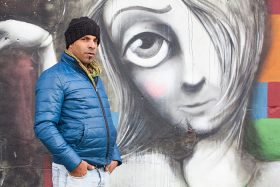A Conversation with Karamba Diaby

Karamba Diaby; photo: Michael Bader
The first black man in the German Parliament — that’s often how Karamba Diaby is introduced. In his book Mit Karamba in den Bundestag: Mein Weg vom Senegal ins deutsche Parlament (With Karamba to the Bundestag: My Journey from Senegal to the German Parliament) Diaby provides fascinating insight into his life, a story of many toppled prejudices.
On June 1, 2017 he will introduce his book as part of our series “New German Stories” and discuss his journey from Senegal to East Germany, his experiences after German reunification, casual racism, and not least the goals and visions he holds as a Member of Parliament. Sithara Weeratunga and Serpil Polat asked Karamba Diaby three questions in anticipation of the event: → continue reading

The Blue Room – things remain exciting! Photo: Barbara Rösch
A boat made of wood and painted canvas strips, a yodeling flamingo, a photograph of turquoise tiles from a Berlin subway station, two cake replicas, metamorphosed Ugaritic letters, a fisherman, a play. What do they all have to do with each other? They are all going to be exhibited at the Jewish Museum Berlin this summer.
And what do a car-body painter, well known in his native Iraq, an architect from Syria, a young Egyptian chef, a painter from the former Soviet Union, a Greek doctoral student, and a social worker from right here in Berlin have in common? They will all be exhibiting at the Jewish Museum Berlin this summer.
On July 12 a group exhibition entitled The Blue Room opens. It will be the high point of a meeting project that I have been supervising since January. → continue reading
Three Question for Anthropologists Dr. Dani Kranz and Katja Harbi

Photo: Katja Harbi
Our Academy programs regularly introduce new scholarship examining contemporary issues of migration and diversity. On May 4, University of Wuppertal anthropologists Dr. Dani Kranz and Katja Harbi will be presenting the results of the study they conducted, entitled Israeli Migration to Germany since 1990, with a lecture and show of photographs at the Jewish Museum Berlin. The research was largely about these immigrants’ identities and the significance of the Shoah for their lives in Germany, as well as the political and ideological debates occurring around them in Israel and Germany. We put three questions to the two anthropologists in advance of their presentation: → continue reading


